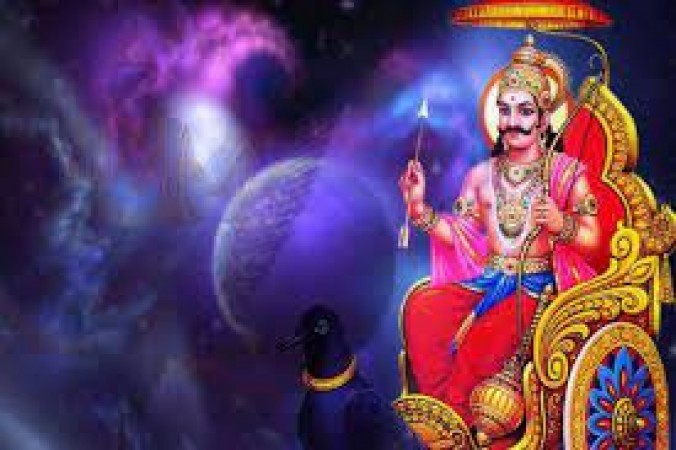
In the vibrant tapestry of Hinduism, numerous deities are revered and worshipped for their unique attributes and cosmic significance. Among them stands Shani Dev, the deity associated with the planet Saturn, often portrayed as a stern cosmic judge and bestower of karmic lessons. However, a question that has often sparked debates and discussions revolves around whether women can worship Shani Dev. Let's delve into this topic and uncover the layers of tradition, belief, and empowerment.
Embracing Diversity in Hindu Beliefs
Hinduism is a diverse and inclusive religion, embracing a wide range of beliefs and practices. While some traditions might have restrictions based on gender, it's important to recognize that Hinduism encompasses various sects and schools of thought, each with its own interpretation of rituals and deities.
The Mythological Perspective
In Hindu mythology, Shani Dev's reputation as a strict enforcer of karma has led to apprehensions about his worship. There are stories that narrate how he brought challenges and transformations to individuals' lives. One of the myths suggests that women should avoid worshipping Shani Dev to evade potential malefic effects.
Challenging the Norms
In the contemporary era, many voices have emerged to challenge these traditional norms. Women today are questioning the exclusionary beliefs and striving for equal participation in religious practices. They argue that divinity transcends gender, and women should have the autonomy to choose their mode of worship.
Empowerment through Worship
Hinduism has a rich history of powerful goddesses and female deities. This juxtaposition raises the question: can women truly not worship Shani Dev? Critics argue that sidelining women from worshipping a specific deity contradicts the inherent power and equality that Hinduism espouses through its goddesses.
Reclaiming Symbolism
Rather than viewing Shani Dev solely as a harbinger of challenges, modern interpretations emphasize the symbolism of his actions. Some believe that the deity's lessons are not gender-specific but are meant to guide individuals on their life journeys, irrespective of their gender identity.
Breaking Stereotypes
The movement to allow women to worship Shani Dev is also intertwined with breaking stereotypes. It advocates for the removal of limitations on women's agency and their ability to engage with all aspects of spirituality.
Modern Practices and Trends
In recent times, it's heartening to witness a shift in practices. Many temples and spiritual communities are revisiting their rules and allowing women to participate in Shani Dev's worship without restrictions.
Inclusivity and Equality
The evolving stance on women's participation reflects a broader shift towards inclusivity and equality. This transformation is in line with the progressive ideals that Hinduism embodies.
The Role of Awareness
Educational efforts play a significant role in reshaping beliefs. As awareness grows about gender equality and the diverse interpretations of religious practices, more individuals are recognizing the need to revise restrictive norms.
The Power of Choice
At its core, the issue revolves around an individual's right to choose how they wish to express their spirituality. Just as spirituality is a personal journey, so is the connection with specific deities.
Respecting Belief Systems
While advocating for change, it's also important to respect the beliefs of those who adhere to traditional norms. The discourse should encourage open conversations without dismissing differing viewpoints.
Harmonizing Tradition and Progress
Balancing tradition with progress is a delicate task. The evolving landscape of women's participation in religious practices reflects the ongoing negotiation between reverence for tradition and the pursuit of equality.
The Shifting Paradigm
In a world that's rapidly transforming, the dynamics of spirituality are also changing. Women are redefining their roles in religious spaces, challenging age-old norms, and asserting their right to engage with deities of their choice.
Women as Agents of Change
The movement to enable women to worship Shani Dev can be seen as a microcosm of the broader struggle for gender equality. It highlights the potential of women as agents of change who are reshaping religious narratives.
A Step Toward Wholeness
Allowing women to worship Shani Dev is not just about a single deity; it's a step toward wholeness, inclusivity, and recognizing the divinity within each individual, regardless of gender.
Conclusion: The Ever-Evolving Spirit of Hinduism
As the fabric of Hinduism continues to evolve, it's clear that the question of whether women can worship Shani Dev is not just about a deity, but about the intersection of tradition, gender equality, and personal choice. The ongoing dialogue surrounding this topic signifies the dynamic nature of spirituality and the quest for a more inclusive and egalitarian world.
Google Empowers Indian Search with Generative AI: A Creative Evolution
iPhone 14 Pro is getting cheaper than iPhone 13! Will be tempted to buy after knowing the price
This Indian company will launch a new bike every 3 months for 1 year